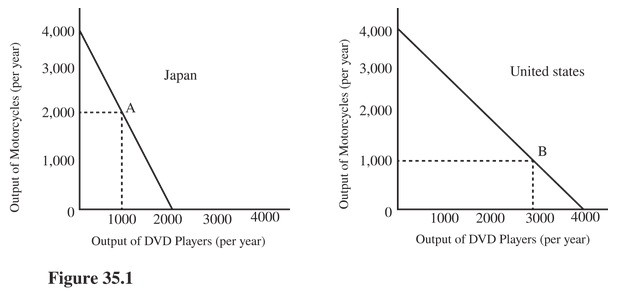If it is employing the rule of reason when considering an antitrust case, the court
a. considers why the offending practice was adopted and its effect on competition
b. does not consider why the offending practice was adopted or its effect on competition
c. ignores the economic rationale for the offending practice and its consequences
d. needs only determine that the offending practice took place
e. considers only whether the firm has market power, not whether it used that power unreasonably
A
You might also like to view...
The growth rate of average annual earnings in the United States from 1973 to 1995 was:
A. lower than it was from 1960 to 1973. B. the same as it was from 1960 to 1973. C. higher than it was from 1960 to 1973. D. roughly equal to zero.
Refer to Table 2-2. According to the law of comparative advantage, both Honduras and Nicaragua could gain if
a. Honduras produced all of the apples and oranges and Nicaragua did not produce anything. b. Honduras specialized in producing apples, Nicaragua specialized in producing oranges, and they traded. c. Honduras specialized in producing oranges, Nicaragua specialized in producing apples, and they traded. d. Nicaragua and Honduras were both were self-sufficient and did not trade.
If the economy is in a recession, and the government increases its spending to bring the economy back to its long-run equilibrium, the long-run level of output will:
A. return, with higher prices. B. return, as will the original price level. C. return, with lower prices. D. increase, with higher prices.
 If the two countries are at points A and B in Figure 35.1 and do not trade, what is the total number of motorcycles produced per year?
If the two countries are at points A and B in Figure 35.1 and do not trade, what is the total number of motorcycles produced per year?
A. 2,000. B. 3,000. C. 4,000. D. 1,000.